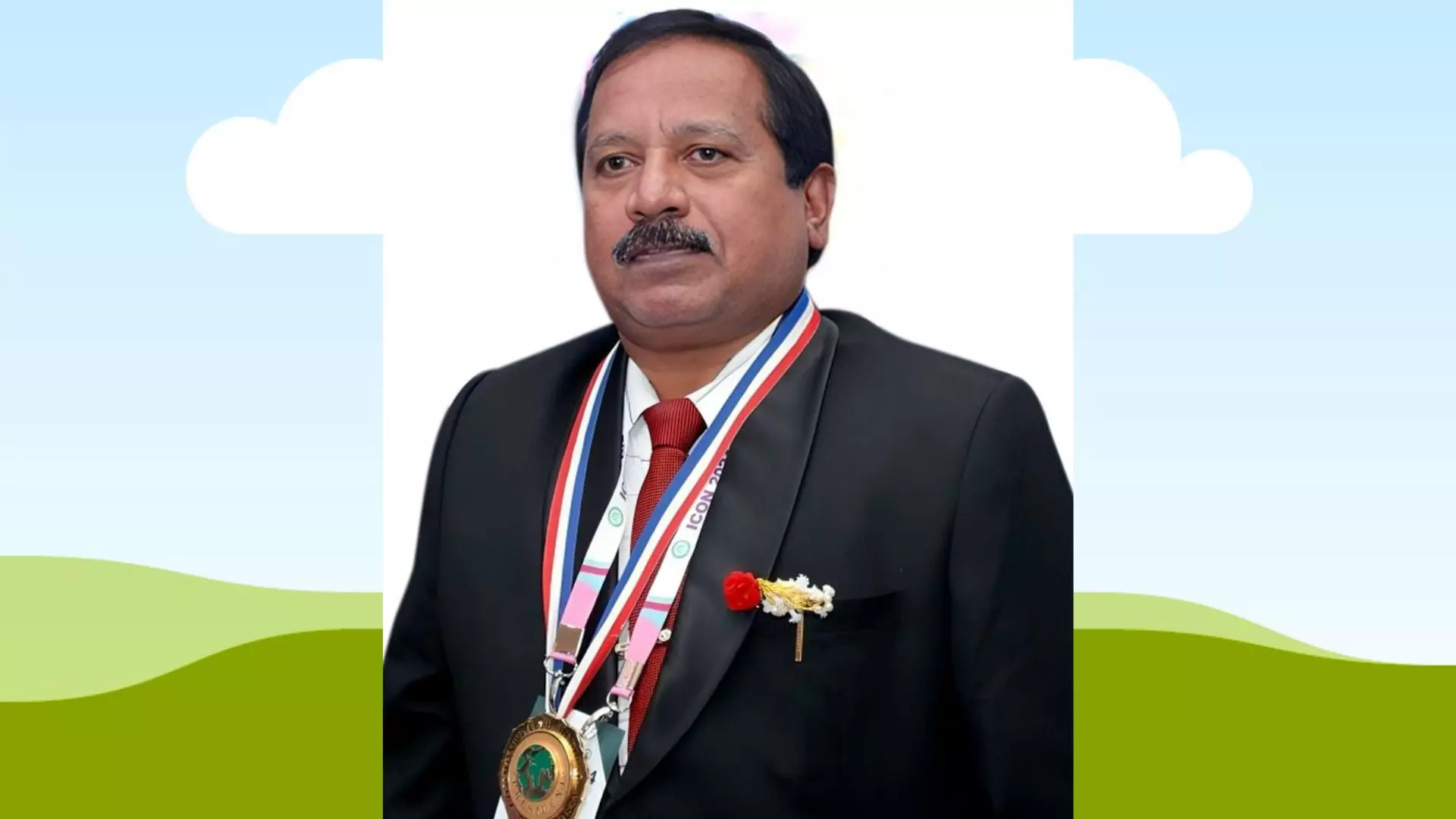Healthcare focus should be on access and affordability for rural people: Dr. Jayalal
Interview with Dr. J. A. Jayalal, president, Commonwealth Medical Association

HYDERABAD: India holds a 'blessed' position among Commonwealth nations as regards healthcare accessibility, opines Dr J. A. Jayalal, president of the Commonwealth Medical Association (CMA). In town for a conference of the Indian Medical Association recently, Dr Jayalal spoke to Deccan Chronicle about the pressing challenges that the country’s healthcare system has to reckon with, including affordability, rural outreach, and policy priorities.
While acknowledging the increased accessibility of healthcare services, Dr Jayalal emphasised that affordability remains a significant challenge, particularly in rural and tribal areas.
“India’s insurance systems are underdeveloped. Despite noble intentions, government schemes like Ayushman Bharat have limitations,” he said. Highlighting the disparities, he pointed out, “Corporate hospitals remain inaccessible to a majority of the population, while public hospitals have been providing free care even before these schemes were contemplated. However, it does not cover the cost of healthcare, which is about 30 per cent of administrative expenses."
On how artificial intelligence (AI) could help in braving these challenges, Dr Jayalal said, "Although it is a welcome technology, it is not going to help on the affordability and accessibility fronts. Moreover, they don’t replace doctors, per se. The information that it is presently providing is from hyper-inflated data that lacks credibility. There is also no security to the patient’s data that is being collected through AI.”
Dr Jayalal took a dig at the Ayushman scheme’s concept of empanelled hospitals.
"The cost of travel to corporate hospitals adds to the out-of-pocket expenses. People are not able to get treatment for common diseases and cardiac problems. Moreover, they are not able to get treatment at their doorstep. Why should the government bring free healthcare through the backdoor via the insurance sector? Let them come and say that 50 per cent of all private hospitals will provide free services for whatever treatment people get. The international body is looking at it quite critically. Of the nearly 75,000 hospitals in India, only 6,000 are accredited by the Quality Council of India,” he observed.
Dr Jayalal expressed concern at India’s Budget allocation for healthcare, which stands at less than two per cent of the GDP compared to five per cent in countries like Sri Lanka.
“Public hospitals shoulder 75 per cent of the healthcare burden, yet the funding is inadequate. Despite going through the pandemic and with the increased ambit of healthcare as highlighted by the government in its 'One Health' concept, it is important to make higher budget allocations to healthcare,” he stated.
Addressing the increase in violent attacks against healthcare professionals, he said, “This is a global issue. While some countries enforce strict laws, India’s fragmented approach undermines security.” He called for a central protection act to safeguard medical professionals.
“The government’s response to this is that health is a state subject. But there are many central acts that have been implemented in states such as the Medical Termination of Pregnancy Act, Pocso Act, PN-MDP Act and the Clinical Establishment Act, among others. As it is, hospitals are highly sensitive areas where everybody is in a tense mood. Now doctors fear taking up emergencies, even those cases where doctors are attacked. I feel that hospitals should be declared as protected zones. A unified law will standardizse protocols by taking cognizance of the offence and lay down the protocols for filing FIRs, investigations and arrests,” Dr Jayalal suggested.
He highlighted CMA’s advocacy for climate-conscious healthcare policies, youth empowerment, and knowledge sharing.
“We must not forget that hospitals are significant contributors to carbon emissions. Addressing this requires systemic changes,” he said.
Dr Jayalal also stressed the need to streamline medical tourism by reducing the influence of intermediaries and ensuring direct collaboration between hospitals across countries. Additionally, tuberculosis control remains a priority.
“India and other Commonwealth members are heavily burdened by tuberculosis. Collaboration between public and private healthcare sectors is essential to combat this issue,” he said.

